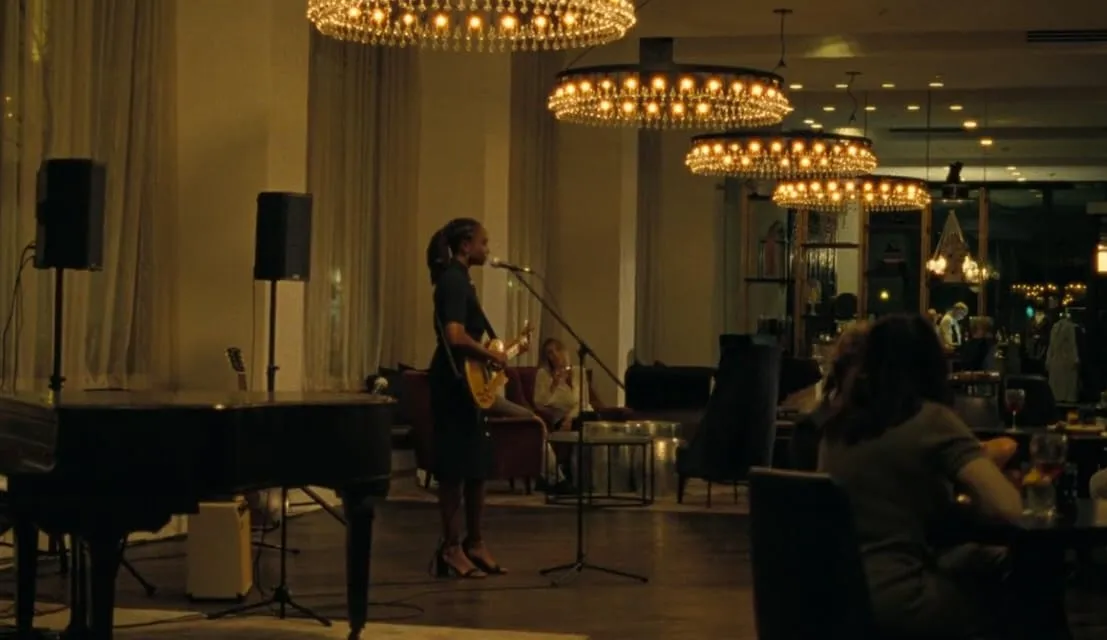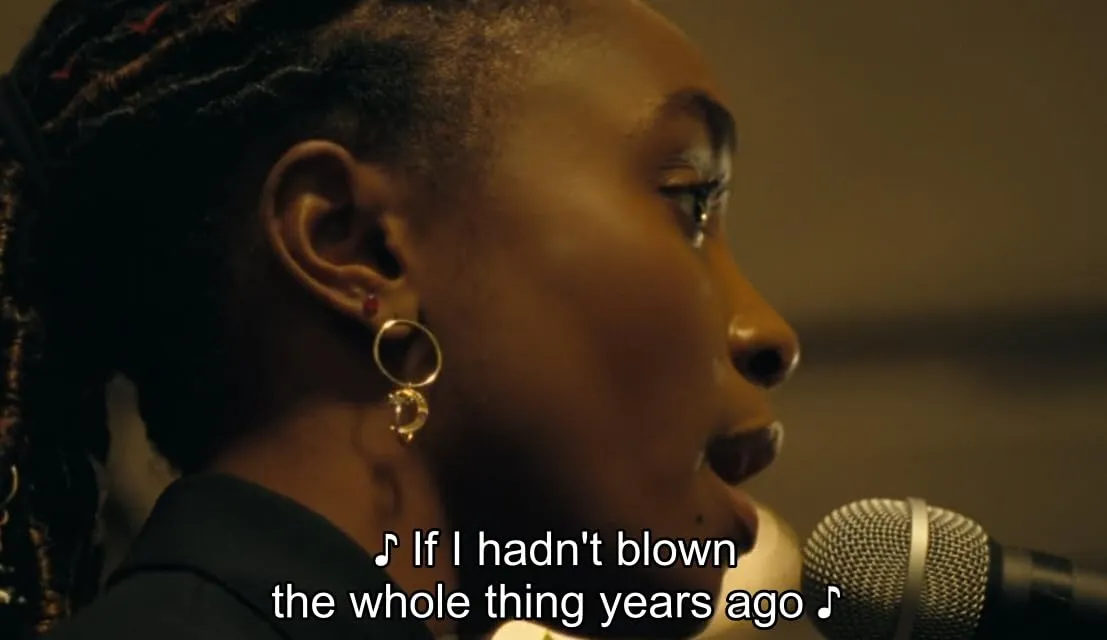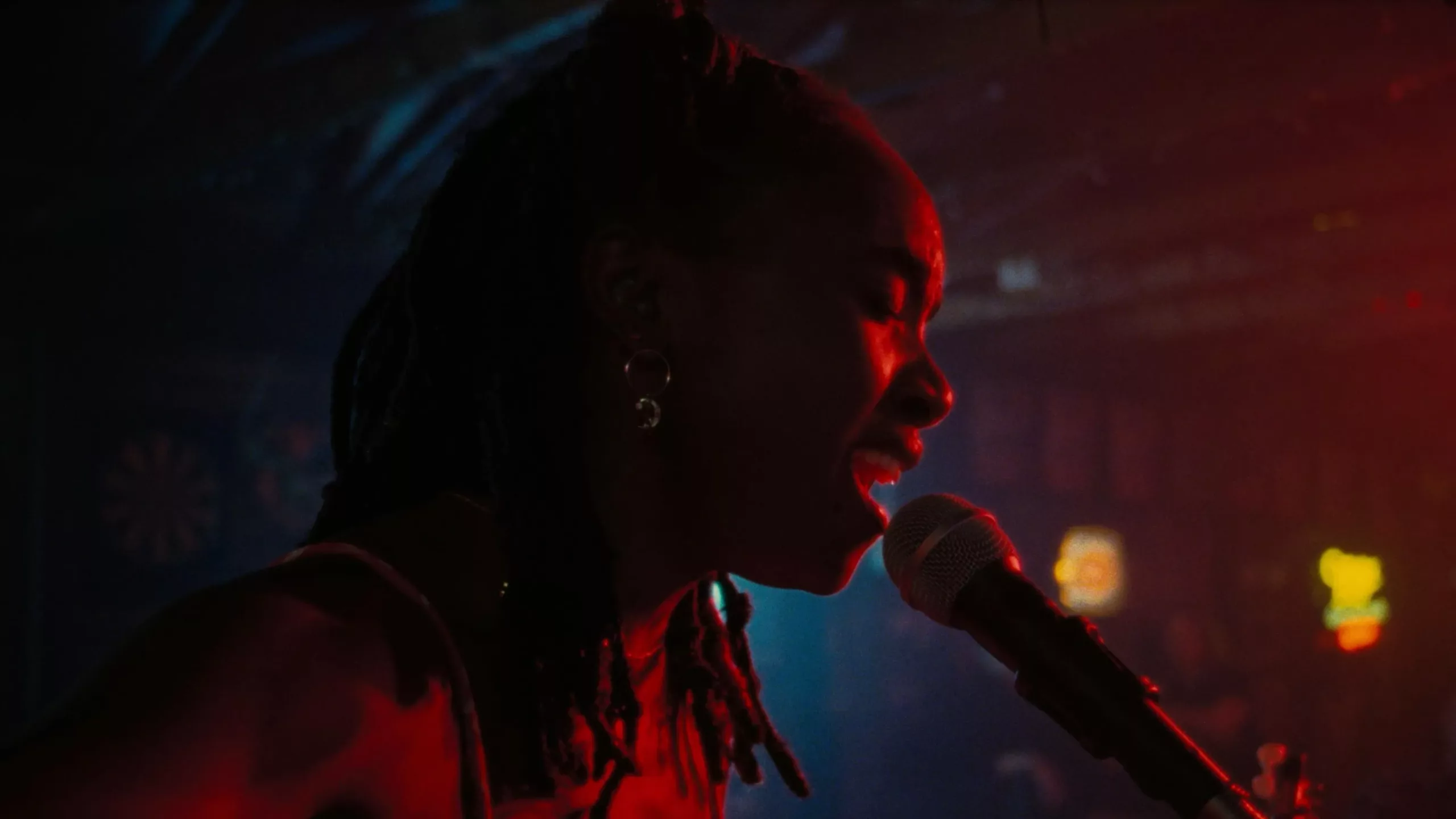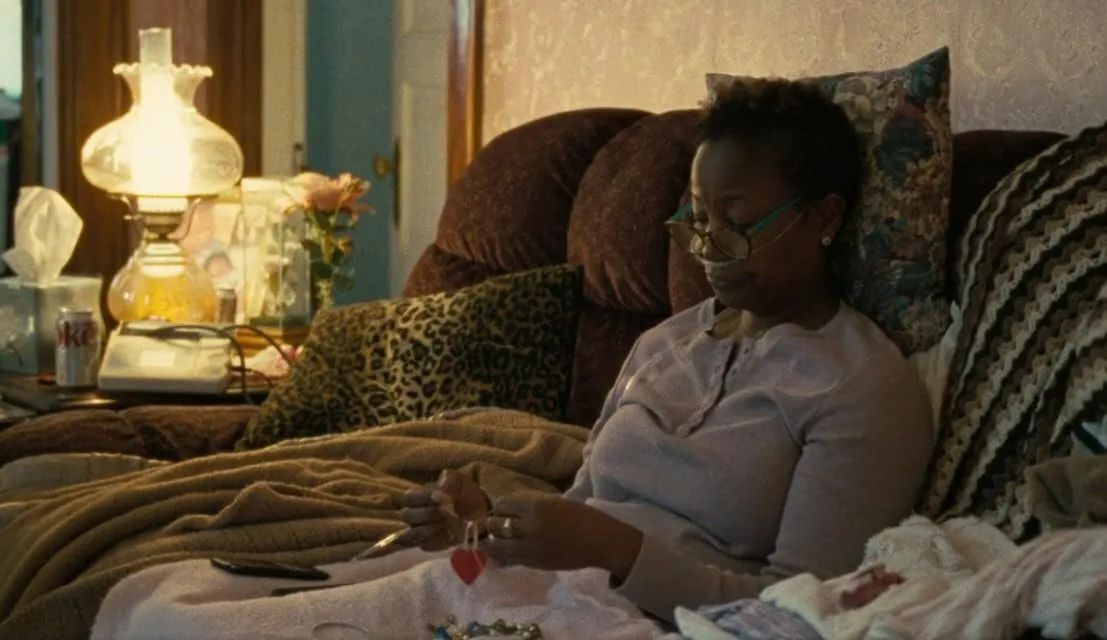The film Dandelion tells the story of a young singer-songwriter named Dandelion, played by KiKi Layne, who leaves her hometown of Cincinnati hoping to find belonging. She’s a talented musician but feels lost performing the same songs every week to distracted crowds at a hotel bar. Director Nicole Riegel creates a character study focused on Dandelion’s journey to discover her artistic voice.
Frustrated by her situation, Dandelion decides to take a chance on a music competition in South Dakota. There, she meets another musician named Casey, played by Thomas Doherty. Both are talented but going through creative struggles. Casey had left his band seeking stability. Though from different backgrounds, they connect through their passion for music.
Over the course of just a few days, Dandelion and Casey inspire each other artistically and develop strong feelings. Their creativity feeds into new songs composed together. Riegel uses their deepening bond to explore universal themes of pursuing dreams and finding community. Layne and Doherty have palpable chemistry, conveying the characters’ emotions through intimate musical performances.
As Dandelion begins to rediscover her voice, she realizes how much recognition and confidence matter to an artist. The film is a thoughtful look at the sacrifices and hard work required to make a career out of music. Riegel sensitively captures Dandelion’s journey, imbuing the story with emotional truth through her committed direction.
The Heart and Soul of Musicians
We first meet Dandelion giving it her all at a hotel bar in Cincinnati, but it’s a thankless gig. Night after night, she pours heart and soul into original songs, only to be ignored by drunken patrons. When not working, she cares for her ailing mother, the stress weighing her down. Dandelion dreams of making music her life’s work, yet feels stuck.
One fight too many sends her fleeing to a songwriter competition in South Dakota. There, she wanders lost among rowdy bikers, unsure what she’ll find in this unfamiliar world. Across the crowds, another lonely soul grabs her attention—Casey, a gifted musician but doubting his abilities.
Where Dandelion sees opportunity, Casey walked away from music seeking stability. But their chance meeting sparks long-dormant passions. As they bond through impromptu duets, a fast friendship blooms into deeper feelings. Inspired anew, Casey mentors Dandelion while she reopens his eyes to dreams once deferred.
Their creativity feeds off each other. Snippets of lyrics evolve into fully-formed songs as the pair lay their bare emotions on the page and stage. For days their world shrinks to sun-soaked hikes crafting melodies only they understand. However, the responsibilities putting their ambitions on hold can’t be outrun forever. And as the weekend’s end looms, real life threatens to shatter their musical idyll.
Heart and Soul of the Performances
KiKi Layne deserves high praise for her heartfelt lead performance as Dandelion. Across every scene, she embodies the character’s mindset with emotional authenticity. When Dandelion sings, Layne puts her whole soul into raw vocal delivery that enhances the musical moments and ties directly into Dandelion’s journey.
She has excellent on-screen chemistry with Thomas Doherty. As Casey, he brings magnetic layers and a passion that balances Dandelion’s determination. Their romance allows new sides of each character to emerge while pushing outside their comfort zones. The acting reveals cracks in Dandelion and Casey’s facades, exposing underlying vulnerabilities.
Glimpses into Dandelion’s fraught relationship with her ill mother offer profound insights. These additions add poignancy and ground the story in reality, despite some contrived plot devices. Ultimately, the cast’s committed work anchors the film, breathing dramatic life through their empathetic performances.
Even when narrative mistakes occur, Layne and Doherty’s soulful characters feel deeply human. Their talents ensure the emotional truth shines through, keeping viewers invested in the exploration of musicians following their creative muses against the challenges of circumstances beyond their control.
Songs of the Soul
The original songs created for the film unfold its story in a uniquely organic way. As Dandelion and Casey’s bond develops, so too do the melodies they craft together.
A striking moment has the pair transforming one of Dandelion’s incomplete lyrics into a bittersweet duet as their argument morphs into artistic collaboration. Their raw emotions pour forth, the lyrics evolving scene by scene. It’s impossible to separate the music from Dandelion’s inner journey.
The film is at its core about the creative process. Songs spring from an outpouring of the characters’ hearts and minds, capturing feelings in a moment. Justin Bryce and Aaron Dessner’s contributions feel like true collaborations with KiKi Layne, authentic expressions emerging from the characters’ experiences.
Whether belting solos with body and soul or harmonizing as one, Dandelion and Casey’s uncontrived performances root viewers in each scene. The music brings their artistic synergy to life, as inseparable from the story as the love blossoming between them.
As their relationship blossoms, so too do the intricacies and intimacies of their melodies. The songs progress right along with Dandelion, development intertwined with self-discovery and changing perspective on life’s hard truths. In every note rings the heart of an artist pursuing their vision despite challenges along the path.
Pastoral Passages
Lauren Guiteras breathes visual poetry into the film. Her pastoral panoramas of South Dakota’s amber-hued plains and misty plateaus envelop the viewer. These windswept terrains become a character as much as the music in Dandelion and Casey’s journey.
Guiteras frames their intimacy with a painter’s eye. Close-ups amplify raw emotion in faces during scenes of joy and vulnerability. Silhouettes against expansive skies evoke their small yet significant figures against the backdrop of lives in flux.
Subtle contrasts between Dandelion’s smoky hometown and the rustic rural idyll woven into sunlight-dappled frames elevate mood and meaning. Her compositions imbue landscapes with soul, just as the songs spring from characters’ inner worlds.
Performance sequences showcase Guiteras’ gift for capturing lived-in feeling. His camera glides as if an extension of the characters, drawing us indelibly into their connection. We breathe as one, with Dandelion belting at a fireside, sharing her intimacy.
Guiteras peers through the lens with empathy and care. Her pastoral passages grant visual poetry to a film contemplating creativity’s power to transform individuals through weathering life’s changeable seasons.
Journeys of the Heart and Soul
One prevailing theme is the search for belonging within an artistic community. Dandelion longs to find acceptance for her talents while gaining validation as a black female musician.
Her journey sees growth in confidence and self-awareness. As she rediscovers passion with Casey, her voice strengthens both literally and figuratively. Yet Riegel balances this optimism with sobering notes on the obstacles those like Dandelion face in a genre still dominated by male perspectives.
Choosing music means taking risks with no guarantees of stability or fame. Both Dandelion and Casey doubted relaunching careers, knowing dreams don’t pay the bills. Their bond inspires renewal but can’t solve life’s realities forever.
Riegel explores these nuances with care, never simplistic. Her portrayal recognizes discrimination shaping Dandelion’s experiences while focusing on the resilience of the human spirit.
Dandelion’s relationship impacts her profoundly, helping her find self-belief until harsh truths intervene. But her talent was always present, waiting to be embraced on her terms.
The film celebrates creative vision, pushing past barriers. With empathy and memorable music, it balances hope with wisdom on persevering against the odds in the name of the heart’s deepest passions. Daniel’s story illuminates universal struggles for meaning through courage and community.
A Song that Lingers in the Heart
Nicole Riegel crafts a character study with staying power through her empathetic direction. KiKi Layne and Thomas Doherty bring raw soulfulness to Dandelion and Casey, anchoring even contrived moments in earnest exploration of the artistic process.
The film sensitively captures trying to follow passion in the face of uncertainty. Riegel explores universal themes of pursuing dreams and overcoming challenges through resilience and community.
Though not flawless, Dandelion imprints itself with memorable musical passages that encapsulate the fleeting yet timeless nature of creative inspiration. Its intimate portraits of characters discovering both themselves and each other through song will linger in the memory.
The film leaves an impression as an emotionally impactful portrait of pursuing purpose. Music lovers especially will find much to appreciate in its journey examining what it means to courageously bet on internal gifts, even against daunting odds. Ultimately a heartfelt meditation on creativity sustaining the human spirit.
The Review
Dandelion
Dandelion offers an intimate glimpse into the heart and soul of artistic passion. While not without flaws, director Nicole Riegel's empathy for her characters and their search for identity through music gives the film resonance that lingers long after viewing. Committed performances by KiKi Layne and Thomas Doherty ground even contrived moments in emotional truth. It remains a poignant portrait of pursuing dreams and all that tide of creative discovery and connection can mean for the human condition.
PROS
- Committed and emotionally raw lead performances by KiKi Layne and Thomas Doherty
- Evocative soundtracks and original songs that enhance storytelling
- Sensitive direction that captures artistic process and universal themes of finding purpose
- Intimate portrayal of creativity's power to transform lives through hardship
CONS
- Some contrived or predictable plot devices
- Occasionally loses focus on developing Daniel's character.
- Conclusion does not match the emotional impact of earlier acts.





















































